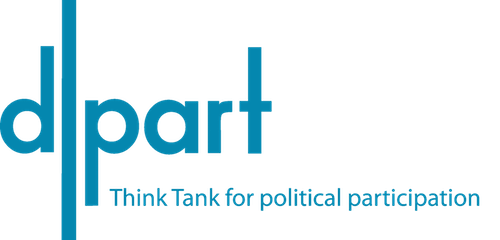Attitudes in the Netherlands on the EU enlargement
A joint project by d|part, the European Fund for the Balkans (EFB) und The Balkans in Europe Policy Advisory Group (BiEPAG)
In 2019, the Dutch parliament vetoed the start of EU accession negotiations with Albania. Together with the simultaneous French veto against the start of talks with North Macedonia and Albania, it became clear how fragile the efforts to expand the EU in Southeastern Europe are.
Many observers classify the Netherlands as fundamentally skeptical about enlargement, which is often attributed to a negative attitude towards EU enlargement among the Dutch population. Although several surveys have confirmed this negative attitude in the Netherlands, most of them only examine the subject superficially. It is still unclear how deeply rooted this rejection in the population is, whether this topic is of great importance to the population in the Netherlands, and how the negative attitude towards EU enlargement is related to attitudes towards the European Union per se.
This project aims to provide answers to these open questions. In cooperation with the European Fund for the Balkans (EFB) and The Balkans in Europe Policy Advisory Group (BiEPAG), d|part will carry out a representative opinion poll on this topic in the Netherlands. The survey will examine in depth the attitudes of the Dutch population towards EU enlargement in the Western Balkans, the perception of previous EU enlargement steps, and the general view of the EU. In addition to the representative survey, interviews with Dutch politicians at national and European level as well as focus groups with Dutch citizens will be conducted. The results of the data collection will be published in autumn 2022 and made accessible on this website.
The project ties in with the project Attitudes in France to EU-Balkan enlargement policy that d|part carried out together with the Open Society European Policy Institute (OSEPI) in 2020.
